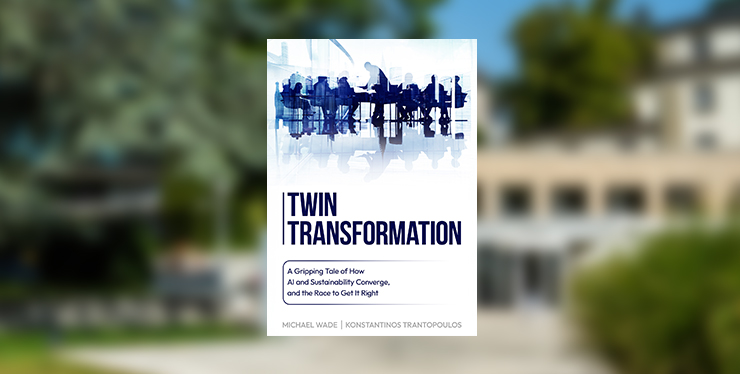A world without cigarettes? Building a sustainability materiality matrix
The case is about a company in one of the so-called sin industries that has committed to phase out cigarettes – the origin of its sins – in favor of a smoke-free future based on reduced-risk products. In early 2020, Huub Savelkouls, Chief Sustainability Officer at Philip Morris International (PMI) and Jennifer Motles Svigilsky, PMI’s Director of Social Impact & Sustainability, were working on the company’s first ever integrated report due for publication in June 2020. Motles, perceived skepticism and mistrust about PMI’s strategy and, specifically, serious doubts about the health effects of IQOS. In 2017, the UN Environment Programme Finance Initiative, in conjunction with Tobacco Free Portfolios, had called for a Tobacco-Free Finance Pledge. By 2020, the pledge had 141 signatories and 41 supporters. Some environmental, social and governance (ESG) investors still seemed interested in PMI’s strategy, but not many were ready to engage publicly. In January 2020, they met with Professor Robert G. Eccles (PMI’s advisor on matters regarding sustainability, social impact and investor engagement since May 2019). They were ready to build and validate PMI’s materiality matrix and try to align stakeholders’ demands with PMI’s priorities. They needed to look at PMI’s value proposition in more depth in light of the feedback received from stakeholders and the significance of PMI’s impact on society and the environment. And they needed to do this in the context of a blanket exclusion of the tobacco industry by ESG investors, mistrust from stakeholders and reputational liabilities. Motles stressed the importance of validating the sustainability materiality matrix because she thought that materiality was a foundational concept in integrated reporting. The case ends with Motles feeling the challenge (a make-or-break moment for her career) and how much was at stake; the sustainability team could not let their stakeholders down and destroy the rapport they were trying to build.
- Describe material sustainability topics.
- Propose a sustainability materiality matrix while recognizing and balancing stakeholders’ demands.
- Prioritize materiality issues from ESG investors´ perspectives.
- Prioritize material sustainability topics-based relevance for corporate strategy and their impact on society and environment.
- Self-assess values and be aware of them when facing cognitive dissonance as well as take responsibility for values and their impact on decisions.
2017- January 2020
Cranfield University
Wharley End Beds MK43 0JR, UK
Tel +44 (0)1234 750903
Email [email protected]
Harvard Business School Publishing
60 Harvard Way, Boston MA 02163, USA
Tel (800) 545-7685 Tel (617)-783-7600
Fax (617) 783-7666
Email [email protected]
NUCB Business School
1-3-1 Nishiki Naka
Nagoya Aichi, Japan 460-0003
Tel +81 52 20 38 111
Email [email protected]
IMD retains all proprietary interests in its case studies and notes. Without prior written permission, IMD cases and notes may not be reproduced, used, translated, included in books or other publications, distributed in any form or by any means, stored in a database or in other retrieval systems. For additional copyright information related to case studies, please contact Case Services.
Research Information & Knowledge Hub for additional information on IMD publications

In President Trump’s second term, a variety of executive actions have reversed social progress. Withdrawing from the Paris Climate Agreement presents a significant challenge to bending the global emissions curve since it is one of the world’s larg...
We systematically review business research concerning the planetary boundaries framework: A natural science framework that identifies nine Earth system boundaries that govern the safe operating space for humanity. Ten years after the introduction ...
Environmental claims are becoming increasingly common in corporate disclosures, but whether they correspond to genuine environmental action rather than greenwashing remains unclear. This paper explores the relationship between companies' environme...
in I by IMD
Research Information & Knowledge Hub for additional information on IMD publications
Research Information & Knowledge Hub for additional information on IMD publications
Research Information & Knowledge Hub for additional information on IMD publications
Research Information & Knowledge Hub for additional information on IMD publications
in Stanford Social Innovation Review Online 2 June 2025
Research Information & Knowledge Hub for additional information on IMD publications
in Journal of Management Studies June 2025, vol. 62, no.4, pp. 1811-1846, https://doi.org/10.1111/joms.13150
Research Information & Knowledge Hub for additional information on IMD publications
in Sustainable Development 29 May 2025, ePub before print, https://doi.org/10.1002/sd.3544
Research Information & Knowledge Hub for additional information on IMD publications
Research Information & Knowledge Hub for additional information on IMD publications
in I by IMD
Research Information & Knowledge Hub for additional information on IMD publications
in I by IMD
Research Information & Knowledge Hub for additional information on IMD publications








